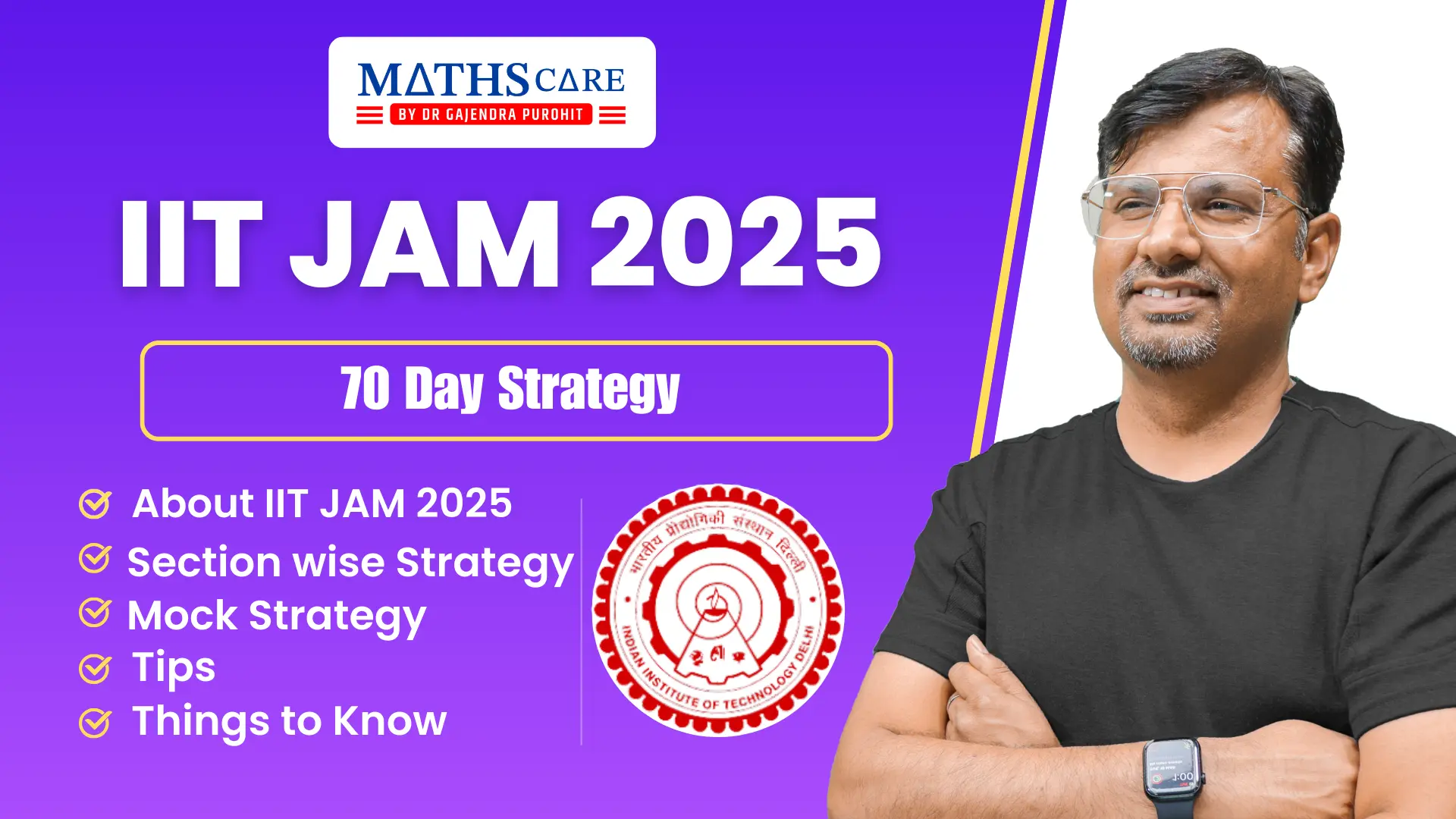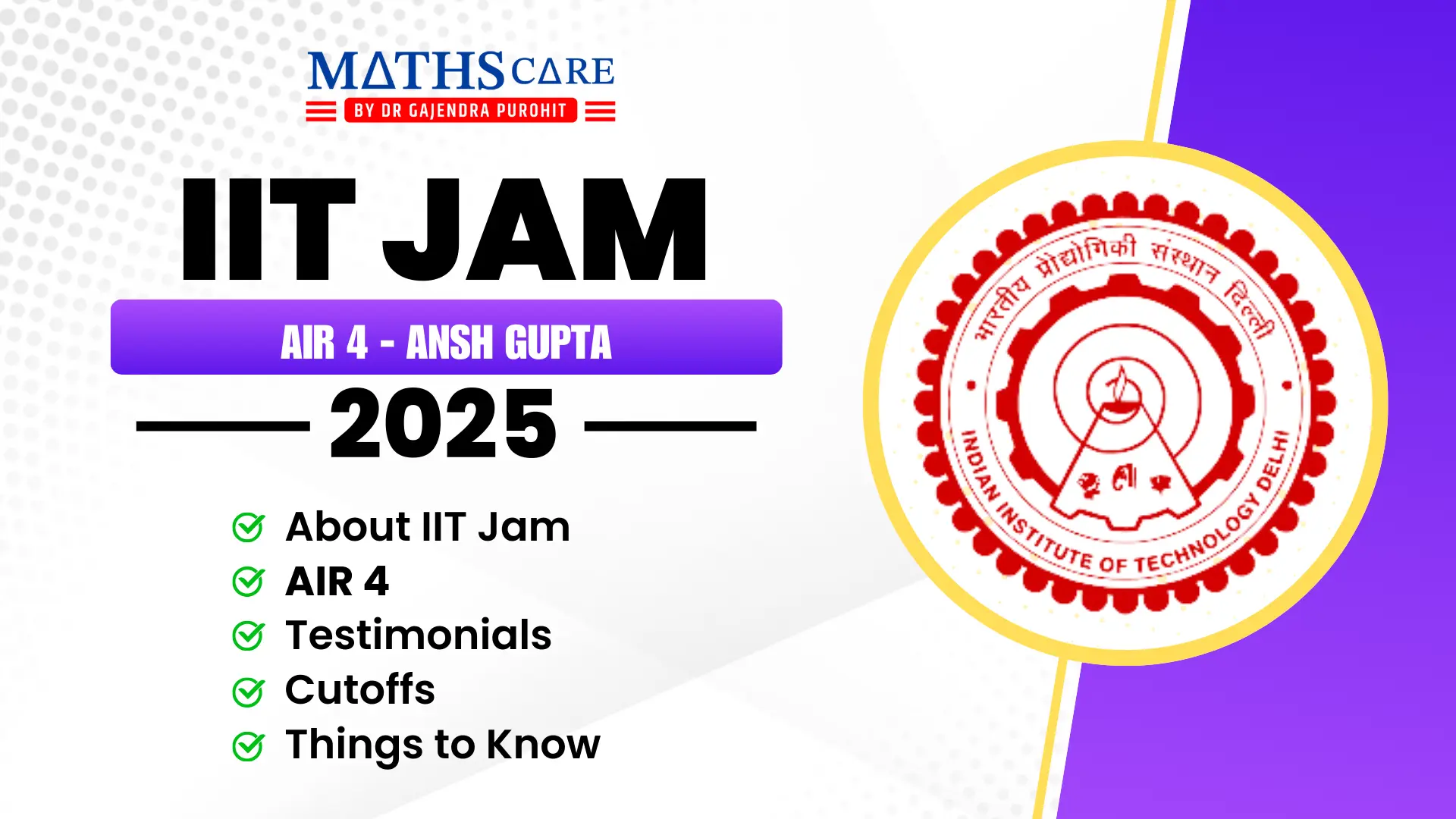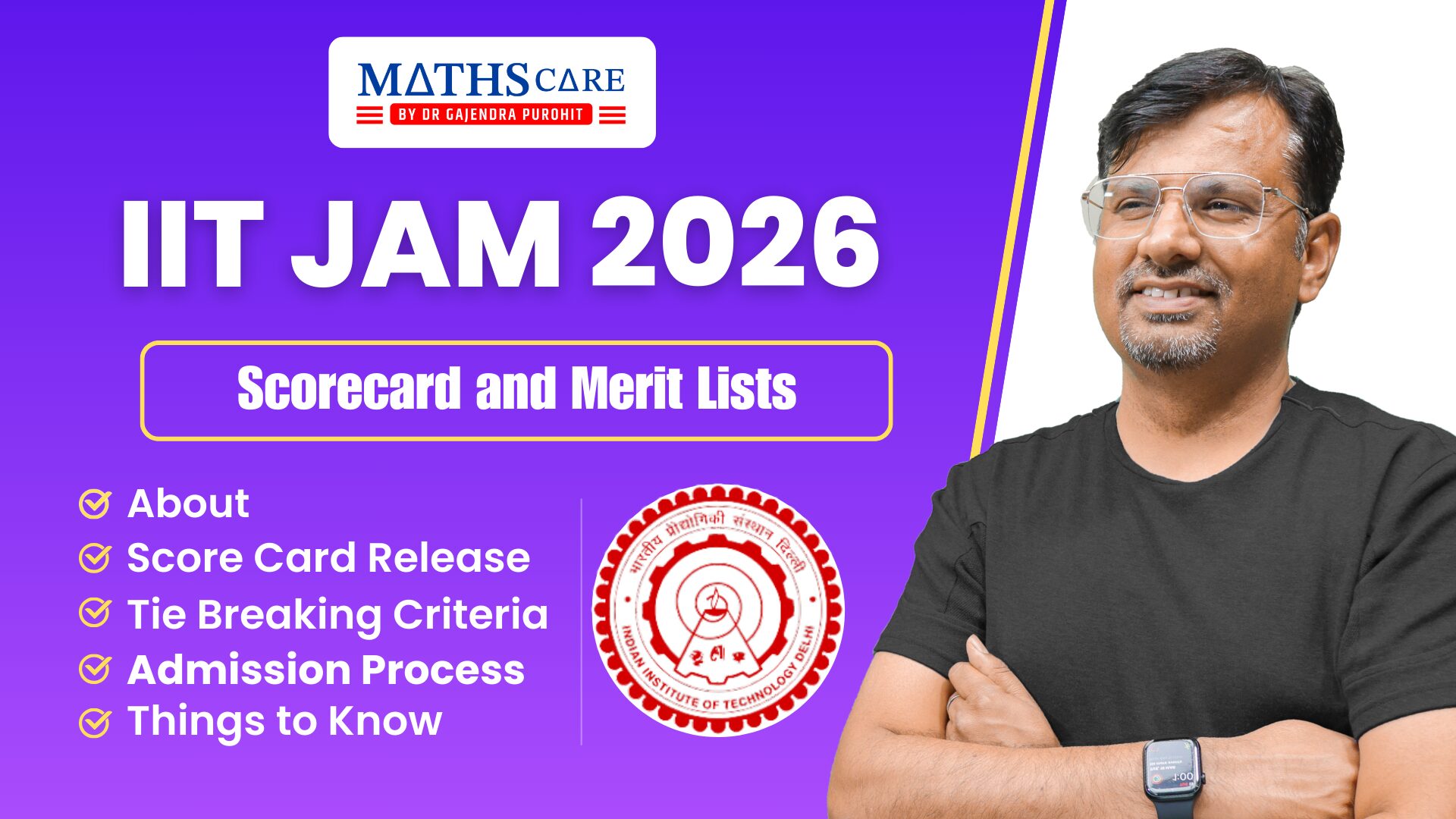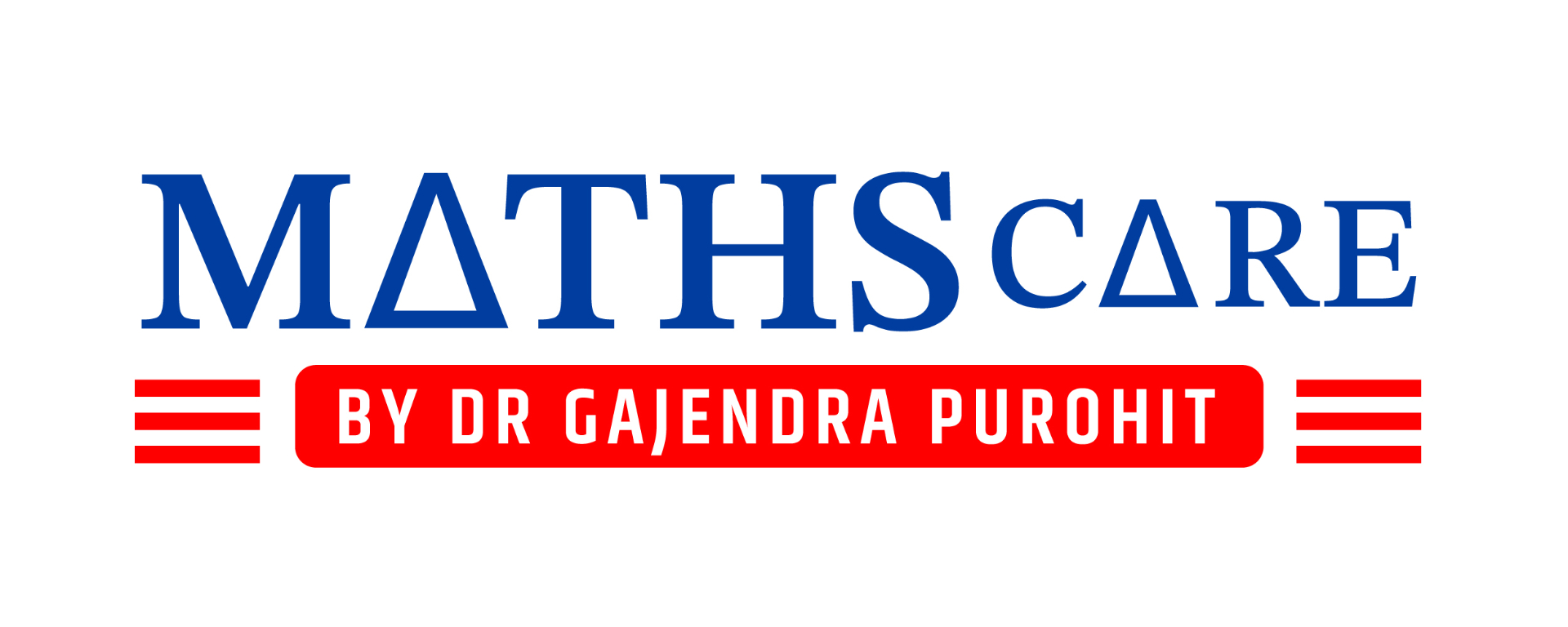IIT JAM Mathematics 2025: 70 Day Strategy
IIT JAM Mathematics 2025 arrives in 70 days, aspirants are in a critical phase where focused preparation can make all the difference. This exam, serving as a gateway to M.Sc. and integrated Ph.D. programs in esteemed institutes like IITs and IISc, demands not just hard work but also smart strategies. The competition is intense, and with thousands of candidates vying for limited seats, a well-structured plan is essential. By utilizing every single day efficiently, covering the syllabus strategically, and mastering time management, aspirants can significantly enhance their chances of success. Staying motivated, consistent, and disciplined during this time will help you overcome challenges and cross the expected cutoff comfortably. This guide will walk you through actionable strategies and essential tips to ace the exam.

About IIT JAM Mathematics 2025
The IIT JAM (Joint Admission Test for M.Sc.) is a prestigious national-level examination conducted annually by one of the IITs. It is designed for candidates aiming to pursue higher studies in science and mathematics at premier institutions like IITs and IISc. The Mathematics paper is particularly competitive, assessing candidates on their conceptual clarity, analytical reasoning, and problem-solving skills. It consists of three sections: Multiple Choice Questions (MCQs), Multiple Select Questions (MSQs), and Numerical Answer Type (NAT) questions. The paper challenges aspirants to think critically, apply concepts effectively, and solve problems with precision. With a solid understanding of the syllabus and smart preparation strategies, candidates can excel in this examination and secure a seat in their desired program.
IIT JAM 2025 Syllabus Overview
The updated syllabus for IIT JAM Mathematics 2025 includes four major topics: Real Analysis, Multivariable Calculus and Differential Equations, Linear Algebra, and Algebra (Groups). These topics form the foundation of the exam and are crucial for scoring well. Unlike previous years, certain topics like Numerical Methods, Complex Analysis, Vector Calculus, Probability and Statistics, and Rings and Fields have been excluded, allowing candidates to focus on a more streamlined syllabus. Understanding the scope of the syllabus is critical to avoid wasting time on irrelevant topics. Dividing the syllabus into smaller sections and creating a timetable to cover each topic comprehensively will ensure efficient preparation. By mastering these topics through consistent practice, candidates can improve their confidence and overall performance.
Expected Cutoff
The expected cutoff for IIT JAM Mathematics 2025 is estimated to be between 19 and 20 marks, based on previous years’ trends and the overall difficulty level of the exam. Cutoffs often vary depending on factors such as the number of applicants, the performance of candidates, and the complexity of the questions. Achieving a score above the cutoff is crucial, not just for qualification but also for securing a seat in top-tier institutes. Candidates should aim to score significantly higher than the cutoff to increase their chances of getting admission into their preferred programs. Strategic preparation, focusing on high-weightage topics, and consistent practice with mock tests can help aspirants comfortably cross this benchmark.
Section-Wise Guide for Preparation
1. Multiple Choice Questions (MCQs)
MCQs form a substantial portion of the exam and require both speed and accuracy. The key to tackling MCQs effectively lies in conceptual clarity. Candidates should focus on understanding fundamental principles to eliminate incorrect options quickly. Practicing a wide variety of problems will help improve confidence and accuracy. Negative marking is applicable, so it is advisable to skip questions where you are unsure of the answer to avoid unnecessary penalties. Time management is crucial in this section. Devote sufficient time to attempt questions confidently while leaving space to revisit flagged ones.
2. Multiple Select Questions (MSQs)
MSQs are unique in requiring multiple correct answers, making them challenging yet rewarding. These questions often test deeper understanding and the ability to apply multiple concepts simultaneously. Topics like Group Theory and Real Analysis frequently feature in MSQs due to their complexity and interlinked concepts. To excel, candidates should focus on building a strong conceptual foundation and practicing questions that require logical reasoning. MSQs do not have negative marking, so attempting all of them is recommended, even if you are partially sure about the answers.
3. Numerical Answer Type (NAT)
NAT questions test candidates’ ability to perform precise calculations and arrive at accurate answers. These questions often involve detailed steps, and accuracy is paramount as there are no options to guide or cross-check your solution. Candidates should double-check calculations and be mindful of signs, decimal points, and rounding errors. Since there is no negative marking in this section, every NAT question should be attempted. Regular practice and solving PYQs (Previous Year Questions) will help improve familiarity with these questions.
IIT JAM Mocks Strategy: Analyze and Adjust
Mock tests play a pivotal role in IIT JAM preparation. They not only help candidates get familiar with the exam pattern but also provide an opportunity to evaluate and improve their performance.
Analyze & Adjust: Mock tests should be treated as tools for self-assessment. After each test, analyze your performance thoroughly. Identify weak areas, rectify mistakes, and adjust your preparation plan accordingly. Pay attention to recurring errors to avoid them in the future.
Daily Short Revision: Allocate time daily for revising critical concepts, formulas, and theorems. Regular revision helps retain information and strengthens weak areas. Focus more on high-weightage topics during these sessions.
Question-Solving Approach: Practice diverse problem sets to build familiarity with question patterns. Include PYQs and mock tests to improve your problem-solving speed and accuracy. Time yourself to ensure efficiency during the actual exam.
Most Important Topics
Focusing on high-weightage topics is essential for maximizing your score. Prioritize the following areas for effective preparation:
Real Analysis: Cover sequences, series, continuity, differentiability, and integration in depth. These topics form the backbone of the syllabus and carry significant weight.
Linear Algebra: Understand concepts like vector spaces, eigenvalues, eigenvectors, and matrix operations. Practice solving problems to build accuracy and speed.
Multivariable Calculus: Focus on partial derivatives, multiple integrals, and their applications. Strengthen your grasp on advanced calculus concepts to handle challenging problems.
Group Theory: Master properties, subgroups, cosets, and their applications. This topic requires thorough understanding and logical reasoning.
Tips for Preparation
Set Clear Goals: Break the syllabus into smaller sections and set realistic weekly targets. Stay consistent and track your progress regularly.
Revise Regularly: Revision is the key to retaining concepts. Dedicate time daily to revisit important topics, formulas, and concepts.
Practice PYQs: Solving previous year questions provides insight into the exam pattern and difficulty level. Make it a habit to practice these questions regularly.
Focus on Strengths: Strengthen areas where you are confident to secure full marks. This boosts your overall score and confidence.
Time Management: During the exam, allocate time wisely. Attempt easier questions first, then move on to challenging ones.
Admitting Institutions
The following premier institutions accept IIT JAM scores:
Indian Institutes of Technology (IITs): Offering diverse postgraduate programs in science.
Indian Institute of Science (IISc), Bangalore: Renowned for its M.Sc. and research programs.
National Institutes of Technology (NITs): Known for excellent M.Sc. opportunities through centralized counseling.
Other Universities: Many state and central universities accept IIT JAM scores for M.Sc. admissions.
Securing a seat in any of these institutions can be a game-changer for your academic and professional career.
Conclusion
With 70 days in hand, a well-structured plan and dedicated efforts can pave the way to success in IIT JAM Mathematics 2025. Focusing on high-weightage topics, solving mock tests, and revising regularly will give you an edge. Utilize every moment wisely and remain consistent in your preparation. Remember, the key to excelling lies in smart preparation and perseverance. Stay confident, and success will surely follow. Best wishes for your journey ahead!
IIT JAM FAQS
How to check IIT JAM Application Status
You can check the status of your application on the JAM 2025 website.
IIT JAM Application Under Scrutiny
No action is needed until you are contacted for corrections if required. The scrutiny process continues even after the portal closes.
IIT JAM Sending a Print-out of the Application
You do not need to send a physical print-out of your application to any JAM institute.
Uploading Category/PwD Certificates IIT JAM
If you belong to OBC(NCL)/EWS/SC/ST or are a PwD, you must upload the appropriate certificates during application submission.
Definition of “Person with Benchmark Disability” in IIT JAM
A person with benchmark disability is defined as someone with at least 40% of a specified disability, as outlined by the RPwD Act 2016.
IIT JAM Scribe and Compensatory Time
Candidates with less than 40% disability and difficulty writing are eligible for a scribe or extra time. Send an email to JAM support with your enrollment details by December 11, 2024, to request these services.
BEST OFFERING COURSES FOR YOU
BEST BOOKS FOR IIT JAM/ CSIR-NET
BUY BOOKS ON OUR APP
RECENT POSTS

IIT JAM 2025 Toppers: AIR 4 – Ansh Gupta

IIT JAM 2025 Scorecard and Merit Lists

IIT JAM Mathematics Syllabus 2025











